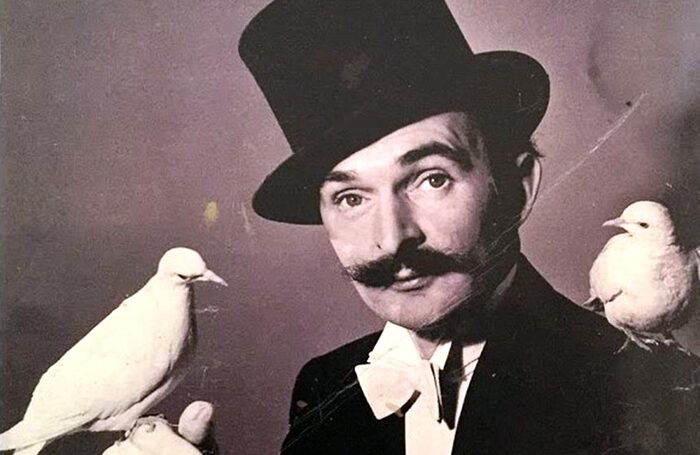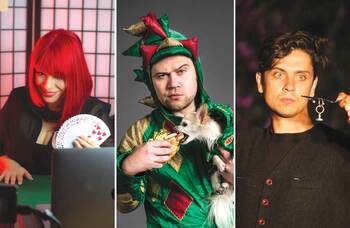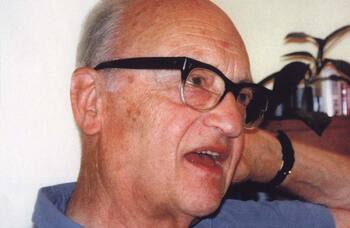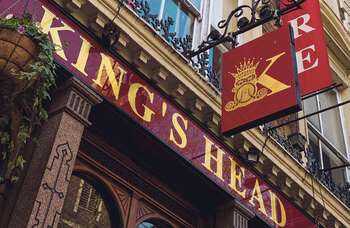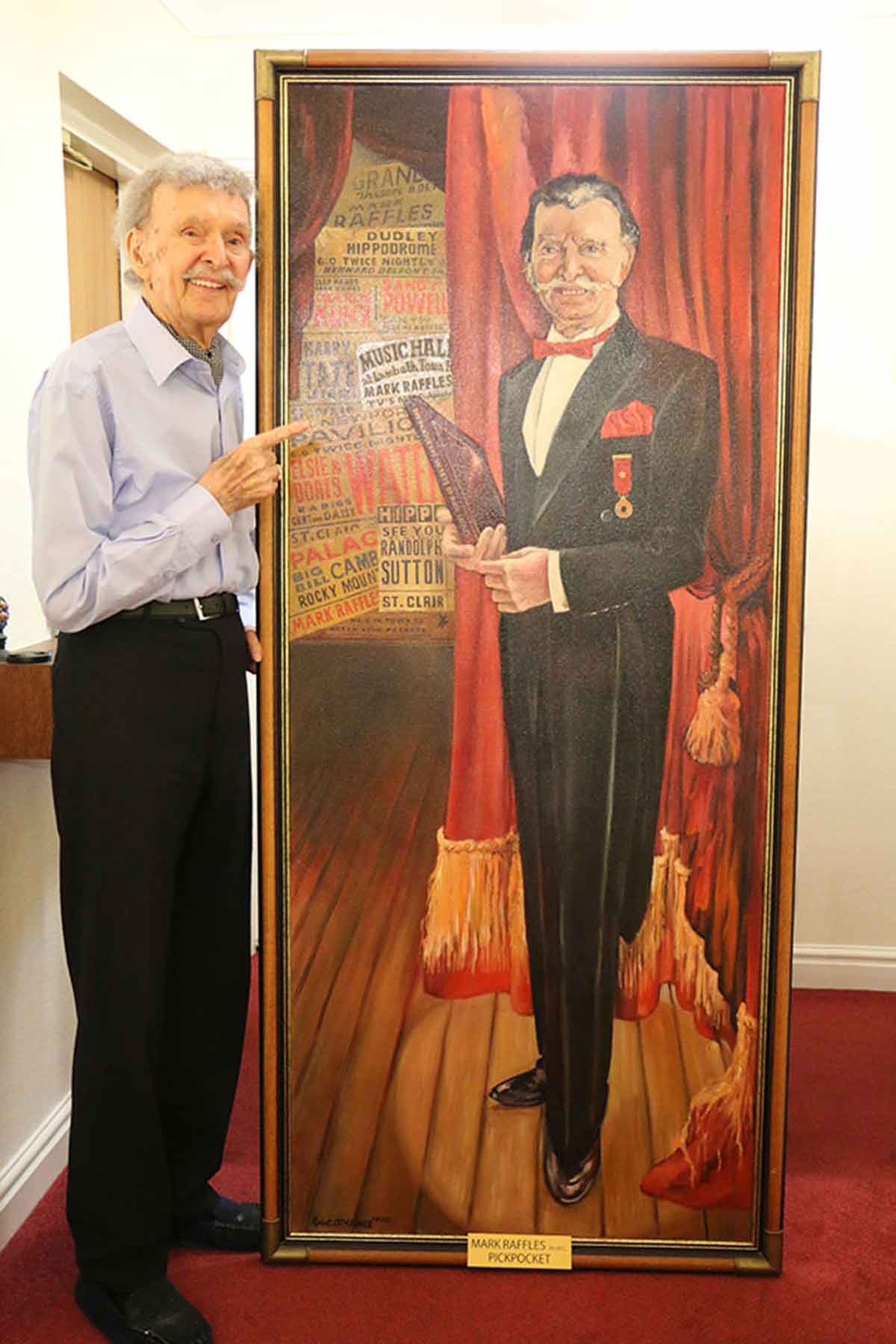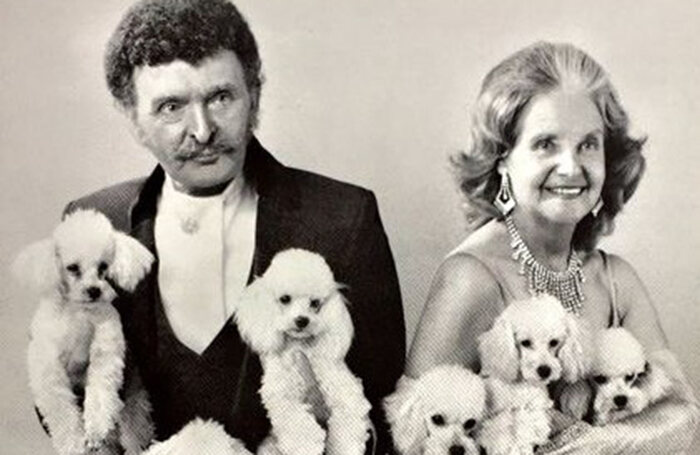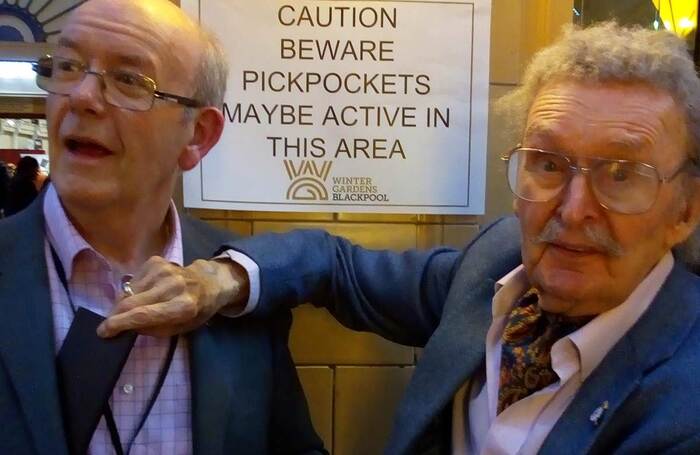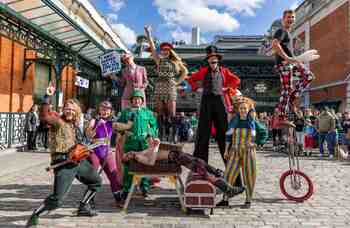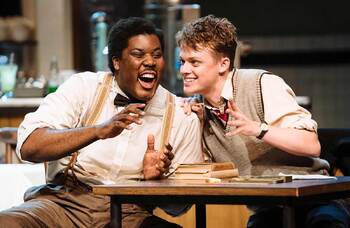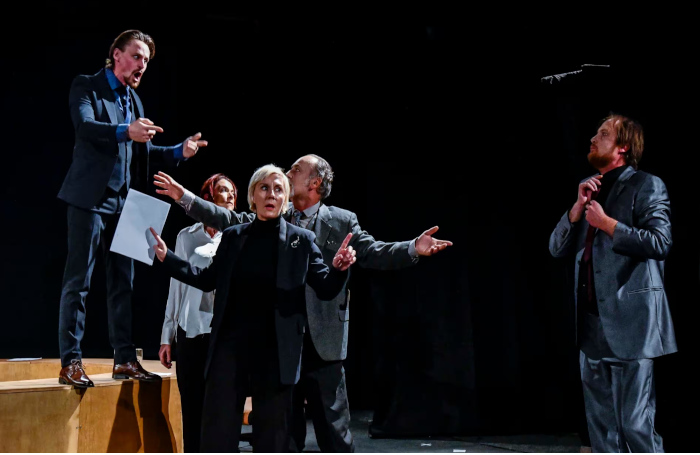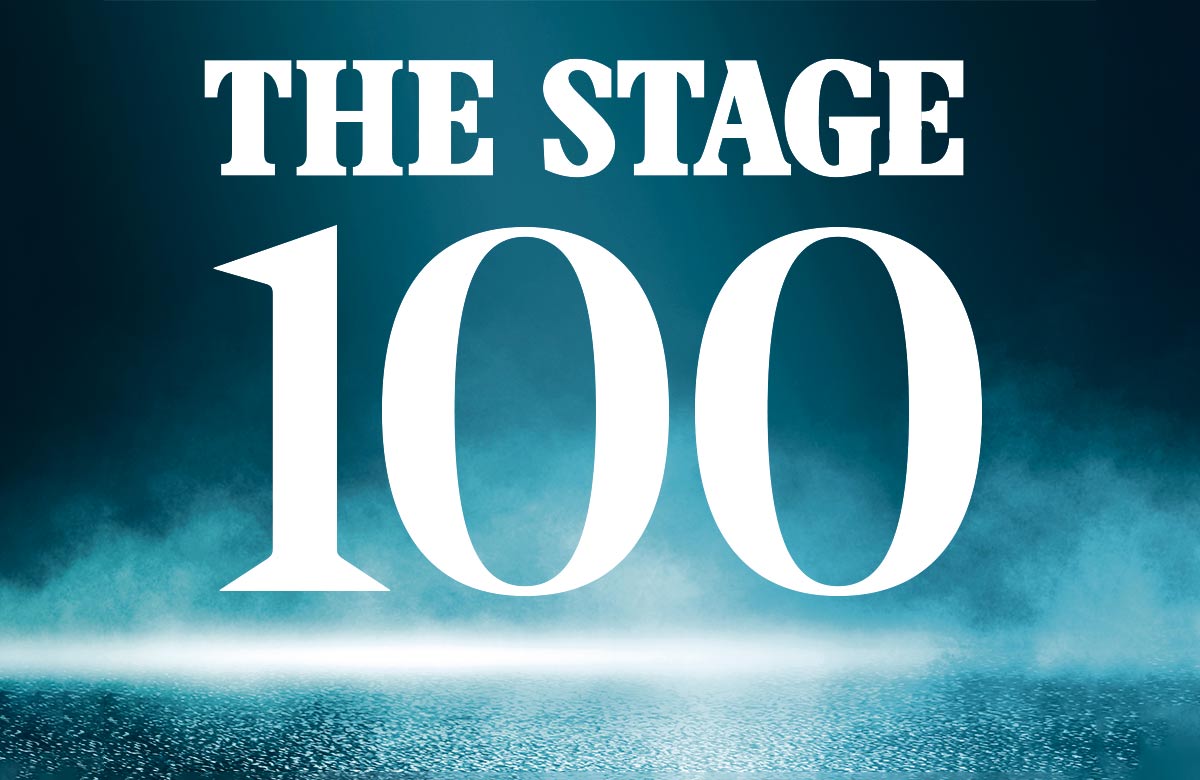Magic moments: Mark Raffles’ remarkable 80 years in showbiz
After discovering he had a gift for magic at an early age, Mark Raffles went on to cast a spell over TV and theatre audiences for 80 years before hanging up his hat and retiring in 2019. As he celebrates his 100th birthday, Nick Smurthwaite looks back on his extraordinary career
Shyness and a severe stammer made the school playground a hazardous place for young Albert Taylor, growing up in Manchester in the 1920s and 1930s. So he sought refuge in magic, as he explains in his 1997 memoir, Magic All the Way: “I found that doing little magic tricks kept the bullies at bay and brought me some kind of peace.”
Only recently retired from performing, Taylor – better known by his stage name Mark Raffles – can look back on eight decades on stage and TV after celebrating his 100th birthday last month at a care home in Wales.
Raffles made his first professional appearance in Manchester in 1938, performing magic tricks in total silence, and went on to become a top variety and TV star – often billed as the Fabulous International Pickpocket – as well as being a legend in the professional magicians’ community.
Continues...
Though he no longer has the dexterity to perform magic tricks, Raffles still keeps in touch with his fans around the world and has been an inspiration to several generations of magicians and illusionists, including the late Paul Daniels and the escapologist Chris Cross.
Daniels’ widow, Debbie McGee, says: “Paul often spoke of Mark, saying how charming he was, so by the time I met him I felt I already knew him. He was a very special performer, with his own style, both on and off the stage.”
On stage, Raffles always prided himself on looking immaculate, dressing initially in full evening dress and top hat, then relaxing into a lounge suit and tie as he became more sought-after for TV variety shows in the 1960s, 1970s and 1980s. He was instantly recognisable by the handlebar moustache that he sports to this day.
Given his family background, there was an inevitability about his career path. His mother Amelia started playing the piano in her stepfather’s pub at the age of eight and went on to appear on stage in a comedy dance act with Charlie Chaplin. His great-uncle, Frank Verity St Clair, wrote and performed more than 2,000 topical songs and monologues for music hall performers. Before morphing into Mark Raffles, his great-nephew used the stage name St Clair when he started out.
Continues...
But the biggest influence on the tyro magician was his uncle, Chris Taylor, also a magician, who urged the youngster to learn magic in order to help overcome his chronic stammer. Taylor always looked dapper on stage and his encouragement kick-started Raffles on the road to success.
His stammer, as well as hearing problems, prevented Raffles from being enlisted, so he spent the war building air-raid shelters and performing with the Entertainments National Service Association. For three years, he entertained servicemen and women in RAF and army bases all over the UK, developing his famous pickpocket routine in which he ‘stole’ items from punters prior to the start of the show and then returned them as part of his act.
He recalls in his memoir thinking at one of the RAF stations: “Had we delivered the last bit of laughter and glamour some of those airmen would ever see? It certainly made you work hard to please.”
In 1944, following D-Day, he crossed the Channel and performed for allied troops in France and Belgium. Later, he was proud to receive the Veterans Badge from the Ministry of Defence in recognition of his wartime service. Rebuilding his career after the war, Raffles found himself at the bottom of the bill and it took four or five years, another name change and the refining of his pickpocket routine to work his way up the variety ladder.
‘Paul [Daniels] often spoke of Mark, saying how charming he was. He was a special performer, with his own style, both on and off the stage’ – Debbie McGee
While appearing in a variety show at the Theatre Royal in Bilston in 1948, Raffles fell for a dancer, Joan Cleare, whom he married six months later. They went on to have three children who all went into showbusiness. In the 1980s, the couple combined forces to take over a well-known variety act called The Wychwoods, which consisted of magic involving 12 toy poodles. They enjoyed success for a decade but by the 1990s, speciality acts were surplus to requirements, although Raffles kept a couple of poodles on a retainer for his magic act.
Continues...
After a lifetime of playing theatres, clubs and TV variety, Raffles resigned himself to being out of fashion by the turn of the millennium. But he has been heartened by the resurgence of variety-style shows on TV such as Britain’s Got Talent and Strictly Come Dancing.
He has also made a valuable contribution to the Blackpool Museum Project with a video, which he wrote the script for and narrated, recalling highlights from his extraordinary 80-year career, including many happy times working in Blackpool. The museum, called Showtown, is due to open next year, celebrating the seaside resort’s entertainment heritage.
Emma Heslewood, the project’s former curator, says: “Meeting Mark shaped so much of what Blackpool’s new museum became. He knows more than anyone how special Blackpool is and how the work of performers like Mark needed somewhere to be celebrated.”
If you’d like to read more stories from the history of theatre, all previous content from The Stage is available at the British Newspaper Archive in a convenient, easy-to-access format. Visit: thestage.co.uk/obituaries--archive/archive
Opinion
Is there less lesbian representation in theatre than ever before?
Recommended for you
Opinion
Is there less lesbian representation in theatre than ever before?
Recommended for you
Most Read
Across The Stage this weekYour subscription helps ensure our journalism can continue
Invest in The Stage today with a subscription starting at just £7.99
